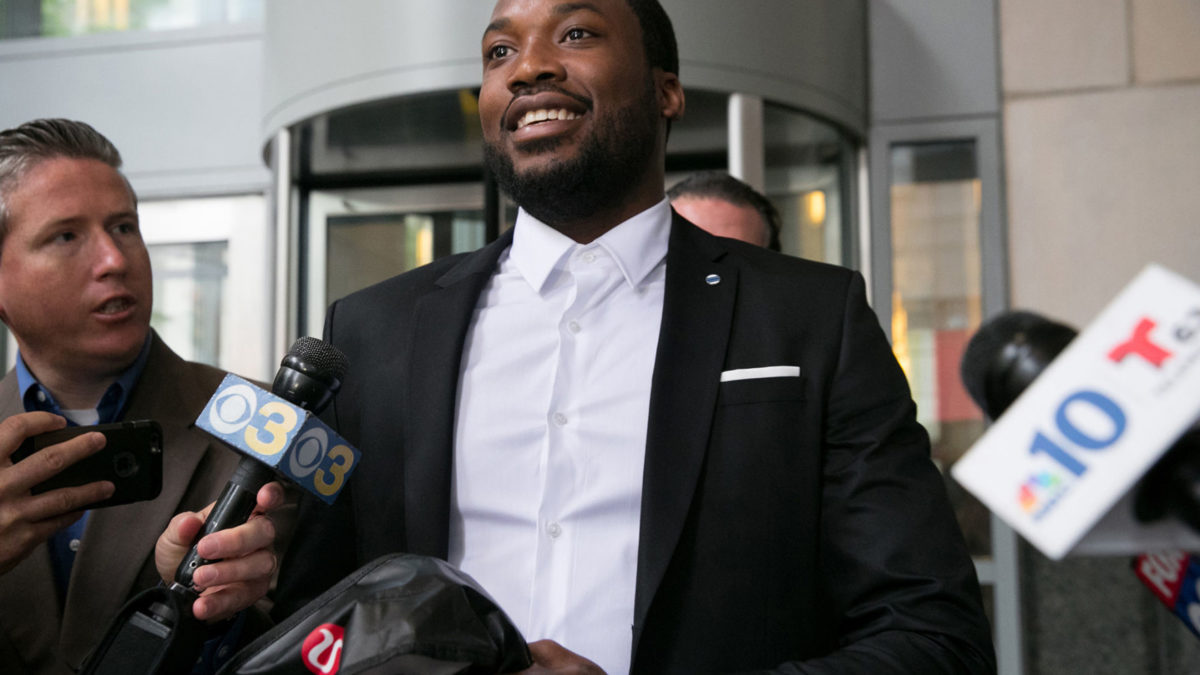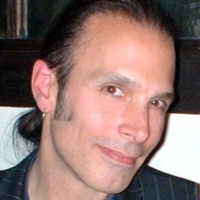There’s something about 100-degree weather, clammy television reporters and celebrity court proceedings that go well together.
Stickier than teaming caramel and chocolate, the three gel together in gooey fashion – a few TMZ reps here, several sweaty 5 p.m. news hosts there – until something of a yucky meltdown occurs.
Maybe that’s being a little dramatic – but not all that much – when it came to the July 16 appearance of Philadelphia rapper Meek Mill and his lawyers before three Pennsylvania Superior Court judges inside a Walnut Street courtroom. The goal was to have Mill’s 2008 conviction on gun and drug charges be tossed out, and to receive a new trial in open court.
Family, old friends and new (such as CNN’s Van Jones and billionaire 76ers co-owner Michael Rubin) packed the quiet courtroom in anticipation of Mill’s arrival. He walked in quietly, alone, buttoned to the neck in all black with a sharp, new DIOR brooch on his suit lapel, and talked to the rows around him.
While Mill joked around with his mom and son prior to the proceedings, the prosecution and the defense legal team prepared opening statements before President Judge Jack A. Panella, President Judge Emeritus Kate Ford Elliott, and Judge Judith Ference Olson. Both sides reiterated long-held beliefs regarding Meek’s public appeals battle. And nearly all of it was pro-Meek Mill – which was not entirely unexpected.
Long before Tuesday’s hearing, lawyers on both sides had already agreed that the most damning testimony during the initial 2008 conviction was based on poor evidence from, and credibility issues with, former Philadelphia Police officer Reginald Graham, the sole witness and “a bad cop” in the words of Mill’s appellate attorney, Kim M. Watterson. Graham was placed on the Philadelphia D.A.’s office “do not call” list due to his history of misconduct and an ask in Mill case to have his testimony thrown out moving forward.
Now quiet, Graham — a retired narcotics officer accused of corruption and faking evidence — once insisted in a Philadelphia magazine interview that, not only he was innocent of all charges, he was actually a whistleblower, a witness to all manner of police corruption. On this day, however, Graham’s reputation was torn down and besmirched from both sides, with Watterson particularly interested in cutting the retired officer down to size as an “unreliable sole witness” to a crime that may never have occurred.
Also in the attack mode mix at the July 16 hearing: a long-held request for fresh adjudication. Mill’s original 2008 judge, Genece Brinkley, sent Mill back to prison in 2017 after she found he’d violated his probation (probation violations, many believe some other judge would have viewed a minor technicality not something that should’ve found Mill sentenced to prison for two-to-four years.
Brinkley also denied Mill’s continued bids for a new trial, stating in court papers that she did not believe Mill’s lawyers or the DA’s Office had sufficiently proved the bad evidence used to secure his original 2007 arrest was perhaps tainted.
Luckily, no one on Meek’s defense team (headed up by Peter Goldberg) brought up the possible vendetta that the judge purportedly has against the rapper, one where Meek laughed at her suggestion of him doing a remake of Boyz II Men’s “On Bended Knee” and giving her a shoutout. Many believe this reason, among others, shouldn’t have a judge treat him as unfairly as Brinkley had, jailing Mill harshly, several times, for probation violations. Brinkley has long denied any wrongdoing, however, while speculative, many can’t deny just how spiteful and incendiary if true.
State prosecutors have been on Mill’s side for some time, as they did not oppose his release on bail after the rapper got thrown back in prison for a few months in late 2017, and even argued that Brinkley had exhibited bias against him.
What made the July 16 hearing even more fascinating, then, was that the prosecuting body, the Philadelphia District Attorney’s office also agreed that the now-retired Reginald Graham was an unreliable witness and that Brinkley had repeatedly shown bias in her decisions. One Pennsylvania Superior Court judge even told Mill and his attorneys that if the appellate court ruled that should the rapper be granted a new trial, procedural guidelines required that his case would be transferred to a judge other Brinkley.
Though clearly pleased and smiling, Mill and his lawyers did not speak on the way out of the Center City courthouse. Instead, Van Jones, the CEO of REFORM Alliance, spoke for Mill and on behalf of REFORM, stating confidently that Mill’s conviction would be overturned completely within two months.
“I have been in criminal justice for 25 years, and I have never seen a district attorney’s office [advocate] for a new trial at the same time the defendant is calling for a new trial,” said Jones. “We are one step closer to justice. This hearing was an extraordinary moment where you have attorneys on both sides saying that a new trial should go forward.
In keeping with the mission of the REFORM Alliance – to dramatically reduce the number of people who are unjustly under the control of the criminal justice system – Jones went on to say that Mill wasn’t just doing this for himself, but for the countless other incarcerated souls victimized by that same system.
Before premiering his upcoming, Jay Z-produced Amazon series, “Free Meek,” Mill has a greater show to deal with, one far closer to having the stain of a decade+ conviction removed from his record.
TWITTER: @ADAMOROSI





